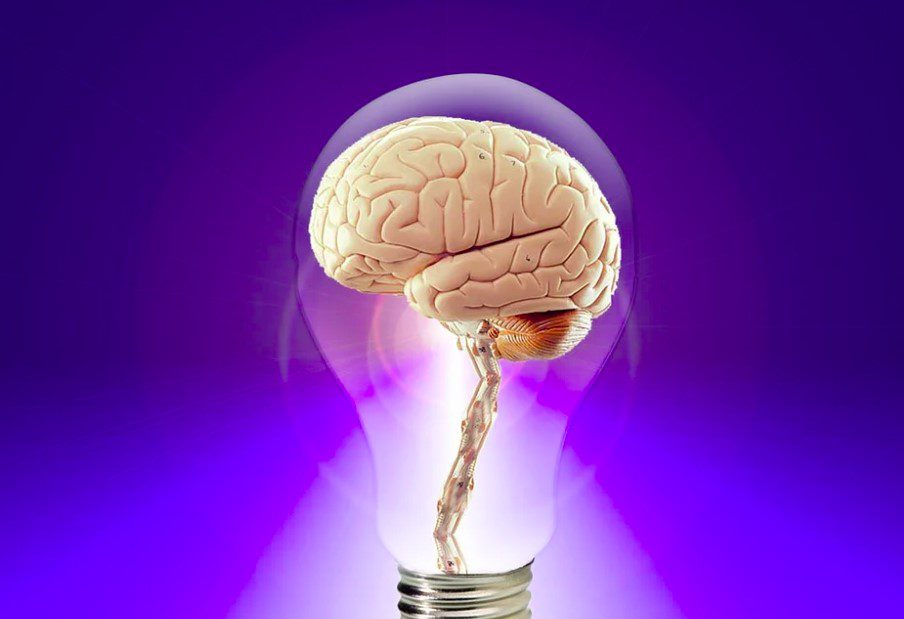We’ve all heard the saying “you are what you eat,” but what does that really mean for brain health? The truth is, the foods we consume play a pivotal role in nourishing and boosting our health, and the brain in particular.
For children, who are in critical stages of brain growth and maturation, consuming relevant foods is very crucial. We owe it to them to give them the best possible start in life.
While many other factors contribute to this desired health, select brain boosting foods play a crucial role in their development. Research has shown that the food children eat affects their cognitive function, behavior, and mood. It can either enhance or hinder brain development, in addition to other development milestones.
In fact, the brain is the most metabolically active organ in the body, which requires a steady supply of nutrients to function properly.
So, if you’re ready to learn how to fuel your child’s brain for success, read on!
How Food Affects the Brain:
The nutrients in our food provide our brains with the energy and building blocks needed for optimal functioning.
Here are some specific ways that food affects the brain:
1. Energy Levels
The brain requires a significant amount of energy to function correctly, and glucose, a type of sugar, happens to be its primary source of this fuel. When our blood sugar levels are stable, our brains can function at their best. However, when we consume foods high in refined sugar, our blood sugar levels spike. This can lead to a crash and decreased cognitive function.
2. Neurotransmitter Production
Neurotransmitters are chemicals in the brain that transmit signals between neurons. Some neurotransmitters, such as serotonin and dopamine, are responsible for regulating our mood and motivation. The production of these neurotransmitters is dependent on the nutrients we consume, such as amino acids, vitamins, and minerals.
3. Inflammation
Chronic inflammation has been linked to a variety of health problems, including Alzheimer’s disease and depression. Certain foods, such as those high in sugar and saturated fats, can contribute to inflammation in the body and brain.
Certain foods, such as turmeric, ginger, and fatty fish, contain anti-inflammatory compounds that can help reduce inflammation and protect the brain.
4. Memory
Adequate blood flow to the brain is crucial for memory, cognitive, and excellent executive function skills. Some foods, such as berries, dark chocolate, and green tea, contain compounds that can improve blood flow and oxygen delivery to the brain.
Certain nutrients, such as omega-3 fatty acids, B vitamins, vitamin E, and antioxidants, have been shown to have a positive effect on memory and brain function. Foods rich in these nutrients include fatty fish, nuts, seeds, leafy greens, berries, and whole grains.
So, what brain boosting foods should children eat?

Now that we know how food affects the brain, let’s dive into the specific foods that can boost our cognitive abilities.
Here are only some of the best brain-boosting foods.
1. Fruits and Vegetables
Fruits and vegetables are packed with vitamins, minerals, and antioxidants that are essential for brain health. Studies have shown that consuming a diet rich in fruits and vegetables is associated with improved cognitive function and a reduced risk of cognitive decline.
Leafy green vegetables, such as spinach and kale, are particularly beneficial for brain health. They are rich in vitamin K, which is essential for cognitive function, and they contain antioxidants that protect the brain from damage.
Berries, such as blueberries and strawberries, are also excellent for brain health. They are high in antioxidants, which protect the brain from oxidative stress and inflammation.
They have also been shown to improve memory and cognitive function.
2. Protein
Protein is essential for brain health, as it provides the amino acids necessary for neurotransmitter synthesis. It is essential for building and repairing tissues in the body, including the brain.
The brain requires amino acids, the building blocks of protein, to create neurotransmitters that regulate mood, sleep, and cognitive function.
Neurotransmitters are the chemical messengers in the brain that enable communication between neurons. Without adequate protein intake, neurotransmitter synthesis is impaired, which can negatively affect cognitive function and mood.
Good sources of protein include lean meats, fish, eggs, beans, and legumes. Fish, in particular, is an excellent source of omega-3 fatty acids, which are crucial for brain health.
Omega-3 fatty acids are involved in the development and maintenance of brain cells and are essential for cognitive function.
However, it’s important to choose lean sources of protein, as too much saturated fat can increase the risk of cardiovascular disease, which can affect brain health.
3. Carbohydrates
Carbohydrates are the primary source of energy for the brain and the rest of the body. They’re broken down into glucose, which is then transported to the brain and used as fuel.
However, not all carbohydrates are created equal. Simple carbohydrates, such as those found in processed foods and sugary drinks, can lead to a spike in blood sugar levels, followed by a crash, which can negatively affect cognitive function and mood.
Complex carbohydrates, on the other hand, are a more stable source of energy for the brain. They provide a steady supply of glucose to the brain, which is necessary for optimal cognitive function. Good sources of complex carbohydrates include whole grains, fruits, and vegetables.
4. Healthy Fats
Fats play a crucial role in brain development and function. The brain is composed of approximately 60% fat, and specific types of fats are essential for its structure and optimal performance.
However, not all fats are created equal. Trans fats and saturated fats can negatively affect cognitive function and mood, while monounsaturated and polyunsaturated fats are beneficial for brain health.
Good sources of healthy fats include nuts, seeds, avocados, and olive oil. Then there are the omega-3 fatty acids. Fatty fish, such as salmon and sardines, are high in omega-3 fatty acids. These healthy fats are essential for brain health and have been shown to improve memory and cognitive function.
Omega-3 fats, particularly docosahexaenoic acid (DHA), are essential for brain development, especially during pregnancy and early childhood. DHA is a structural component of brain cell membranes and supports neuronal communication and synaptic function.
It is found in high amounts in fatty fish like salmon, mackerel, and sardines. Plant-based sources of omega-3s include flaxseeds, chia seeds, and walnut
Monounsaturated fats, such as those found in olive oil, avocados, and nuts (e.g., almonds, cashews), are beneficial for brain health. They help support healthy blood flow and reduce inflammation, which can contribute to cognitive decline.
While saturated fats have been associated with negative health effects, recent research suggests that certain types of saturated fats, such as those found in coconut oil and dark chocolate, may have brain-protective properties. However, it’s important to consume saturated fats in moderation and focus on obtaining a variety of fats from different sources.
5. Nuts and Seeds
Nuts and select fruit seeds are packed with antioxidants, including vitamin E. Antioxidants help protect the brain from oxidative stress, which can damage cells and contribute to age-related cognitive decline such as Alzheimer’s disease.
Certain nuts and seeds, such as walnuts, flaxseeds, and chia seeds, are excellent sources of omega-3 fatty acids. Omega-3s are crucial for brain development and function, as they play a role in forming the structure of brain cells and supporting communication between neurons.
Nuts and seeds contain various B vitamins, such as thiamine, niacin, and folate. These vitamins are involved in energy production, neurotransmitter synthesis, and maintaining the overall health of the nervous system.
Fruit seeds are also a source of plant-based protein. Protein is necessary for the production of neurotransmitters, which are chemical messengers that facilitate communication between brain cells.
6. Dark Chocolate
Dark chocolate, particularly the one with a high cocoa content, has been associated with potential benefits for brain health and development. However, it’s important to note that these effects are primarily attributed to the cocoa content rather than the overall chocolate product.
Dark chocolate is rich in flavonoids, which are natural compounds with antioxidant and anti-inflammatory properties. Flavonoids, particularly a subclass called flavanols, have been linked to improved cognitive function and brain health. They may help increase blood flow to the brain, enhance neuronal signaling, and protect against oxidative stress and inflammation.
Some studies suggest that consuming dark chocolate, primarily due to its flavonoid content, may have positive effects on cognitive performance. These effects may include improved attention, memory, and processing speed.
It’s important to note that while dark chocolate can potentially provide these benefits, moderation is key. Dark chocolate is still a calorie-dense food, and excessive consumption may contribute to weight gain and other health issues. Additionally, not all chocolate products are created equal, and those with higher cocoa content tend to offer more potential health benefits.
The impact of processed foods on brain development:

Unfortunately, many of the foods that are marketed to children are high in sugar, fat, and salt, and are low in nutrients. Processed foods are often cheaper and more convenient than whole foods, which makes them an attractive option for busy parents.
However, the long-term consequences of a diet high in processed foods can be severe. Processed foods are associated with a higher risk of obesity, type 2 diabetes, and other chronic diseases. They are also linked to impaired cognitive function and a higher risk of mental health problems.
One study found that children who ate a diet high in processed foods had lower IQ scores than children who ate a healthy diet. The researchers found that the children who ate a healthy diet were more likely to perform well on tests of cognitive function and had better behavioral outcomes.
The impact of processed foods on children’s brain development cannot be overstated.
As parents, we have a responsibility to provide our children with the best possible start in life. This means making healthy food choices for them and teaching them to make healthy choices for themselves as they grow up.
It’s not always easy to make healthy food choices, but the benefits are worth it. When children eat a healthy diet, they are more likely to perform well in school, have better cognitive function, and experience better mental health outcomes.
Q and A on Brain Boosting Foods:
Q: Can a poor diet contribute to cognitive decline?
A: Yes, a diet high in refined sugar and saturated fats has been linked to cognitive decline and an increased risk of Alzheimer’s disease.
Q: Can certain foods improve mood and motivation?
A: Yes, foods high in tryptophan, such as turkey and bananas, can boost the production of serotonin, a neurotransmitter responsible for regulating mood and motivation.
Q: Is it possible to reverse the effects of a poor diet on the brain?
A: Yes, making dietary changes and consuming brain-boosting foods can improve cognitive function and protect against age-related cognitive decline.





Leave a Reply